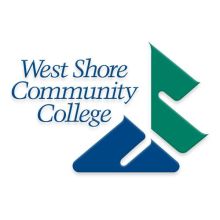West Shore Community College


Selected Programs at West Shore Community College
Explore programs at West Shore Community College. This list is curated by SkillPointe to match skills-based industries and careers that don't require a four-year degree.
Browse Training Programs (28)
Bookkeeper
Office Manager
Welder
Welding Certificate
Welders use a variety of equipment to apply intense heat to metal for the purpose of joining them together or for cutting or trimming them to desired...
View Program
Welding, A.A.A.S.
Welders use a variety of equipment to apply intense heat to metal for the purpose of joining them together or for cutting or trimming them to desired...
View Program
MRI Technician
Magnetic Resonance Imaging (MRI), A.A.A.S.
MRI is offered in collaboration with other Michigan community colleges through the Michigan Colleges Online (MCO) collaborative. Courses in semesters...
View Program
Medical Records and Health Information Technician
Medical Office Information Systems, A.A.A.S.
Medical office information systems prepares the student with the skills for an entry‐level medical office position. The student will be trained to...
View Program
Nurse - LPN / LVN
Practical Nursing Certificate
Licensed Practical Nurses (LPNs) work in nursing homes, hospitals, private homes, and physician offices. They help people of all ages by assessing...
View Program
Radiology Technician
Radiologic Technology, A.A.A.S.
Radiologic technologists, also known as “rad techs,” perform diagnostic imaging examinations using computerized equipment such as x‐rays and MRIs...
View Program
IT Support Specialist
Network and Computer Systems Administrator
Network Services Certificate
Business operations often depend on networks that enable multi‐user data access and processing. This program includes hardware and software...
View Program
Network Services, A.A.A.S.
Business operations often depend on networks that enable multi‐user data access and processing. This program includes hardware and software...
View Program
Software Developer
Software Development Certificate
The goal of WSCC’s Software Development Certificate is to provide entry‐level Information Technology course work in programming, web page development...
View Program
Systems Analyst
Electrical and Electronics Engineering Technician
Electrical-Electronics Certificate
Building a body of knowledge and understanding of these topical areas provide the ability to work with electrical applications involving transformers...
View Program
Electrical-Electronics, A.A.A.S.
Building a body of knowledge and understanding of these topical areas provide the ability to work with electrical applications involving transformers...
View Program
Electro-Mechanical Technician
Mechatronics Certificate
Mechatronics workers need to know automation components as well as understand how these components integrate into a system. Manufacturing industries...
View Program
Mechatronics, A.A.A.S.
Mechatronics workers need to know automation components as well as understand how these components integrate into a system. Manufacturing industries...
View Program
Machinist
Precision Machine Technology Certificate
The ability to operate computer numerically controlled (CNC) machinery efficiently, while producing quality parts, is a skill in demand in today’s...
View Program
Precision Machine Technology, A.A.A.S.
The ability to operate computer numerically controlled (CNC) machinery efficiently, while producing quality parts, is a skill in demand in today’s...
View Program
Paralegal and Legal Assistant
Mechanical Systems Certificate
Mechanical equipment maintenance technician careers offer some of the highest paying and most satisfying opportunities available as companies increase...
View Program
Mechanical Systems, A.A.A.S.
Mechanical equipment maintenance technician careers offer some of the highest paying and most satisfying opportunities available as companies increase...
View Program
Correctional Officer
EMTs and Paramedics
Emergency Medical Technician (EMT) Certificate
The EMT program prepares students to take the National Registry EMT (NREMT) exam to become a licensed EMT. Individuals must be 18 years of age to be...
View Program
Police Officer
Law Enforcement Certificate
Students must meet all state standards for pre‐service police training to beginning the Certificate courses, and they must meet additional...
View Program
Law Enforcement, A.A.A.S.
Students must earn a minimum of 60 credit hours and have an overall GPA of 2.0 or higher in order to earn a degree. Students must also take any...
View Program
Preschool Teacher
Early Childhood Education Certificate
Over the last decade an increased awareness about the importance of early childhood education has led to the distinctive instruction of young children...
View Program
Early Childhood Education, A.A.A.S.
Over the last decade an increased awareness about the importance of early childhood education has led to the distinctive instruction of young children...
View Program
Address
3000 N Stiles Rd
Scottville, MI 49454-0277
Scottville, MI 49454-0277
Phone number
231-845-6211